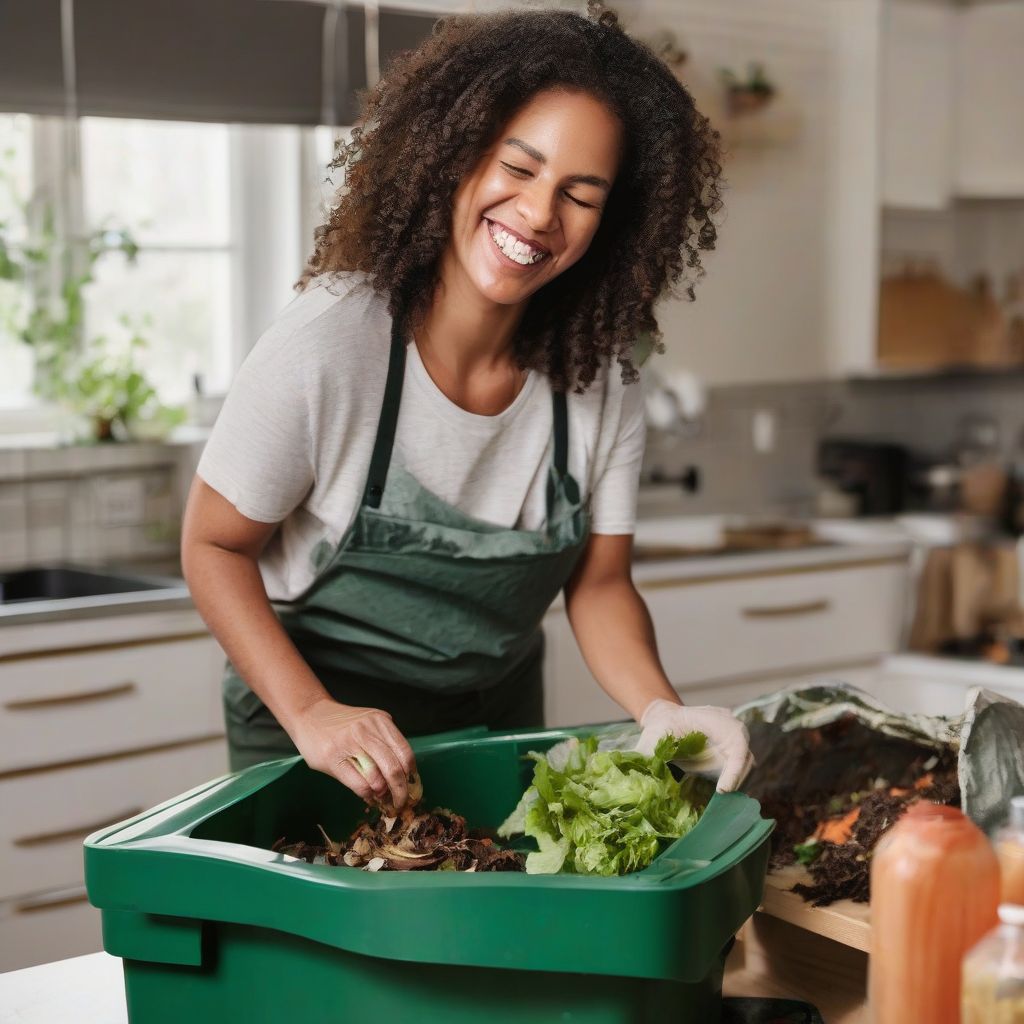Imagine this: you wake up in the morning, sunlight streaming through your kitchen window. You whip up a delicious breakfast, and as you clean up, you realize something amazing. There’s barely any trash! This, my friend, is the power of a zero-waste home, and it’s easier than you think, especially with the incredible green products available today.
As a nutritionist and meal prep coach, I’m passionate about healthy living, and that includes the health of our planet. Let’s dive into how you can create a zero-waste home that’s not only good for you but also good for the environment.
Understanding the Zero-Waste Lifestyle
Before we jump into the practical steps, let’s clarify what “zero-waste” really means. It’s not about generating absolutely zero trash; it’s about minimizing your environmental impact by reducing what you send to landfills. Think of it as a journey, not a destination!
Why Choose Green Products?
Green products, or eco-friendly products, are designed to have a minimal impact on the environment. They’re often made from sustainable materials, are biodegradable, and come in reusable or minimal packaging. By choosing green products, you’re supporting companies that prioritize sustainability and voting for a healthier planet with your dollar.
Simple Steps to a Zero-Waste Home
1. Start with Your Kitchen
- Ditch the Disposables: Swap plastic wrap for reusable beeswax wraps or silicone food covers. Opt for reusable containers for leftovers instead of plastic bags.
- Embrace Reusable Shopping Bags: Keep a stash of reusable bags in your car or by the door so you’re always prepared.
- Compost Like a Pro: Food scraps and yard waste make up a huge portion of landfill waste. Get yourself a compost bin or use a composting system to turn these scraps into nutrient-rich soil.
- Choose Sustainable Food Storage: Invest in glass storage containers for leftovers, bulk foods, and pantry staples. Glass is non-toxic and doesn’t retain odors or stains like plastic can.
2. Eco-Friendly Bathroom Essentials
- Say Goodbye to Single-Use Plastics: Switch to bar soap instead of liquid soap in plastic bottles. Use shampoo and conditioner bars instead of their liquid counterparts.
- Make Your Own Cleaning Products: You’d be surprised how easy it is to whip up effective cleaning solutions with simple ingredients like vinegar, baking soda, and essential oils.
- Opt for Reusable Menstrual Products: Consider using a menstrual cup or reusable cloth pads to significantly reduce waste.
3. Green Up Your Cleaning Routine
- Choose Natural Cleaning Products: Many commercial cleaners are filled with harsh chemicals. Look for plant-based, biodegradable cleaners or make your own.
- Ditch Paper Towels: Switch to reusable cloth towels for most of your cleaning needs. Keep a designated set for messes that require a disposable option.
4. Sustainable Shopping Habits
- Shop Local and in Season: Supporting local farmers markets reduces transportation emissions and often means fresher produce.
- Buy in Bulk: Reduce packaging waste by buying items like grains, nuts, and seeds in bulk. Bring your reusable containers or bags.
- Support Sustainable Brands: Choose companies that are transparent about their environmental practices and prioritize sustainability.
5. Reduce, Reuse, Recycle (and Compost!)
This classic mantra is more relevant than ever:
- Reduce: Be mindful of your consumption habits. Do you really need another pair of jeans, or can you mend the ones you have?
- Reuse: Get creative! Turn old t-shirts into cleaning rags, or glass jars into storage containers.
- Recycle: Familiarize yourself with your local recycling guidelines.
- Compost: Start composting if you haven’t already!
 Composting at Home
Composting at Home
The Benefits of a Zero-Waste Home
- Environmental Protection: This one is a no-brainer! Reducing your waste means conserving natural resources and minimizing pollution.
- Healthier Home: Many conventional products contain harsh chemicals that can be harmful to your health. Choosing green products creates a healthier indoor environment.
- Save Money: You might be surprised how much money you can save by reducing your consumption and reusing items.
- Increased Mindfulness: Living a zero-waste lifestyle encourages you to be more aware of your consumption habits and their impact on the planet.
[amazon bestseller=”zero waste home”]
Conclusion: It’s a Journey, Not a Race
Creating a zero-waste home is a process, and it’s okay to start small. Focus on making gradual changes that feel manageable. Every step you take towards a more sustainable lifestyle makes a difference! Remember, perfection isn’t the goal—progress is. What small change will you make today to create a greener, healthier home? Let me know in the comments below!
